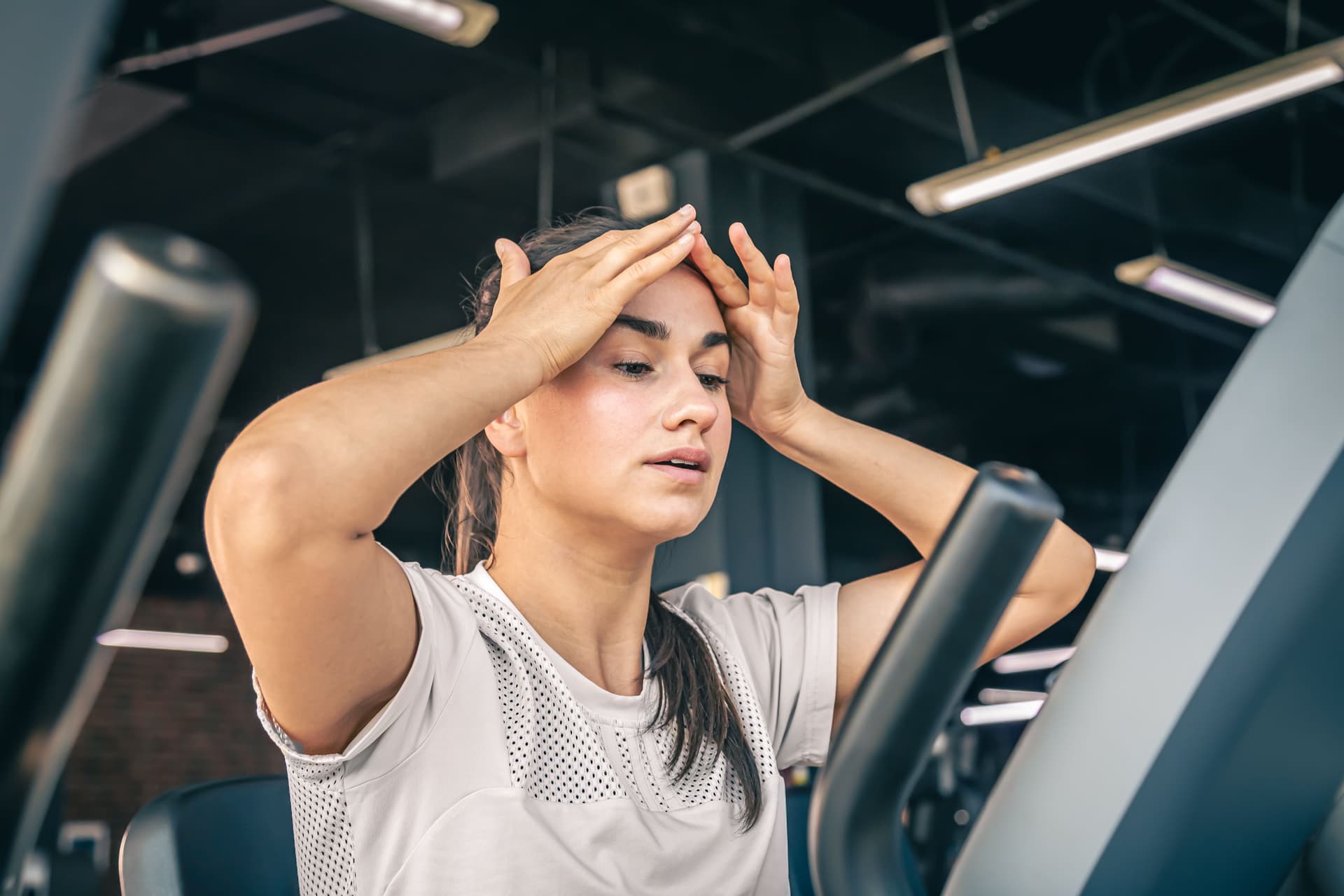You're doing everything right, or so you think.
Five AM alarm. Hour-long cardio sessions. Pushing through that burning sensation because "no pain, no gain." Grinding through workouts even when you're exhausted because consistency is key, right?
But lately, you've noticed something troubling. Instead of feeling energized after exercise, you're wiped out for hours. You catch every cold that goes around. Your joints ache more than they used to. Sleep feels restless despite all that physical effort.
What if the very thing you're doing to get healthier is actually working against you? Here's what the fitness industry doesn't want you to know: exercise can be medicine or poison, depending on how your body is processing the stress you're putting it under.
Why Your Body Treats Exercise Like an Emergency
Your nervous system has one job: keep you alive. It can't distinguish between the stress of running from a predator and the stress of your morning HIIT class.
When you exercise intensely while your body is already dealing with work stress, poor sleep, nutritional deficiencies, or other health challenges, your nervous system interprets this as a compound emergency.
Research shows that excessive exercise without adequate recovery actually suppresses immune function, elevates cortisol levels chronically, and can lead to a condition called "overtraining syndrome"—where your body essentially gets stuck in survival mode.
Instead of building you up, intense exercise starts breaking you down. Your body begins treating your workout like another threat to survive rather than an opportunity to thrive.
The Modern Exercise Trap
Here's the problem with most fitness advice: it assumes you're starting with a healthy, well-functioning nervous system.
But most people today are already operating with compromised stress responses due to chronic lifestyle stressors. Poor sleep, constant connectivity, inflammatory foods, and environmental toxins all put your nervous system on high alert.
When you add intense exercise to an already stressed system, studies indicate you can actually worsen inflammation, disrupt hormone production, and impair your body's ability to recover and repair itself.
This is why some people can work out religiously but still feel tired, get sick frequently, and struggle with stubborn health issues. They're asking their body to perform when it's already running on empty.

What Your Body Actually Needs From Movement
Movement should enhance your health, not deplete it.
Research demonstrates that the right type and amount of exercise actually supports nervous system function, reduces inflammation, and improves stress resilience. But the key is matching your exercise intensity to your body's current capacity.
When your nervous system is functioning optimally, you can handle and benefit from more intense activity. When it's compromised, your body needs gentler, more restorative movement that supports rather than stresses your healing systems.
Clinical studies show that moderate, consistent exercise improves heart rate variability (a measure of nervous system health), enhances immune function, and promotes better sleep and mood regulation.
The goal isn't to exercise harder—it's to exercise smarter, in a way that supports your body's natural healing and adaptation processes.
The Science of Sustainable Fitness
The most effective exercise programs work with your body's natural rhythms rather than against them.
High-intensity interval training (HIIT, when done correctly and with adequate recovery, can actually optimize hormonal function and improve metabolic efficiency—but only when your nervous system can handle the stress.
The secret is creating what researchers call "hormetic stress"—just enough challenge to stimulate adaptation without overwhelming your system's ability to recover.
This often means shorter, more efficient workouts that prioritize movement quality over quantity, adequate rest between sessions, and paying attention to how your body responds rather than blindly following a predetermined plan.

When Exercise Becomes Medicine
When you align your movement with your body's current needs and capacity, remarkable things happen.
Energy levels improve because exercise is supporting rather than depleting your nervous system. Sleep quality enhances because your body can properly shift into recovery mode. Immune function strengthens because exercise becomes a positive stressor that builds resilience.
Many people discover they can achieve better results with less time and effort when they focus on exercise that truly serves their health rather than punishes their body.
Supporting Your Body's Exercise Potential
The most effective fitness approach considers your entire health picture, not just your workout routine.
When your nervous system is functioning optimally through proper spinal alignment, when you're providing your body with adequate nutrition and managing stress effectively, and when you're minimizing factors that interfere with recovery, exercise becomes exponentially more beneficial.
Some people find that following a scientifically-designed exercise system that takes these factors into account helps them achieve better results in less time while actually improving their overall health and energy levels.
The goal is creating sustainable fitness that enhances every aspect of your life rather than draining it.

References:
- https://www.ncbi.nlm.nih.gov/books/NBK482280/
- https://pubmed.ncbi.nlm.nih.gov/12696983/
- https://www.health.harvard.edu/staying-healthy/understanding-the-stress-response
- https://pmc.ncbi.nlm.nih.gov/articles/PMC6962351/
- https://pmc.ncbi.nlm.nih.gov/articles/PMC6678635/
- https://pubmed.ncbi.nlm.nih.gov/15131556/
- https://pmc.ncbi.nlm.nih.gov/articles/PMC4657417/


